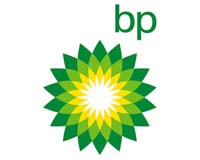 |
Beijing (UPI) Jun 7, 2010 China National Offshore Oil Corp said it is focusing on safety issues in light of the Deepwater Horizon oil spill in the Gulf of Mexico. Zhou Shouwei, vice president of state-owned CNOOC, China's largest offshore oil and gas producer, told China Daily the company "ordered checks on every offshore oil and gas project to ensure safety." Zhou said the company has invested close to $73 million since developing the company's oil leak prevention systems seven years ago. "We are making every effort to make sure this (an oil spill) does not happen," he said. Zhou said that the company's steps to enhance safety include upgrading the blowout preventer system of its 1.86-mile deep water rig being built in Shanghai. The blowout preventer is being designed to shut down automatically when there is an accident. A columnist for the Toronto Star newspaper -- pointing out that the Deepwater Horizon disaster resulted from the failure of the five-story blowout preventer that sits atop the Macondo wellhead about 5,000 feet below the surface -- said that there should be two protectors, stacked atop each other. He wrote that CNOOC, in its deep water natural gas projects in the South China Sea with Calgary-based partner Husky Energy Inc., would use two sets of blowout preventers as a precautionary measure. "The global offshore oil and gas industry will see higher safety standards after the cause of the BP accident is pinpointed," predicted Song Lisong, CNOOC's manager of quality, health, safety and environment, noting that seven oil leak prevention bases in China's coastal areas will be completed by the end of this year and seven had already been built. Chen Zhidong, chief energy researcher with China's Energy Research Institute under CNOOC earlier told China Daily that most of CNOOC's offshore portfolio is still focused on shallow waters. Yet Chinese oil companies will continue to increase deep water oil and gas exploration activities because of the huge potential represented, said Dong Xiucheng, professor at the China University of Petroleum. Zheng Binghui, deputy director of China's Academy of Environmental Science, suggested that government agencies increase surveillance of oil companies, reinforce safety standards and devise contingency plans for large-scale disasters. Last month CNOOC said it would increase its refining capacity to 51.50 million metric tons by 2015 to meet China's soaring fuel demand. The Shanghai Securities News reported last month that China has the world's second largest capacity for crude processing after the United States, reaching 477 million tons at the end of 2009.
Share This Article With Planet Earth
Related Links Powering The World in the 21st Century at Energy-Daily.com
 Obama fires warning over BP share dividend
Obama fires warning over BP share dividendKenner, Louisiana (AFP) June 4, 2010 President Barack Obama fired a seething warning to BP Friday, warning the oil giant must not go cheap on Gulf of Mexico disaster victims if it pays billions of dollars in share dividends. Obama, who has been criticized for not showing enough emotion over the worst environmental disaster in US history, showed flashes of obvious anger as he hammered BP, which operated the Deepwater Horizon rig ... read more |
|
| The content herein, unless otherwise known to be public domain, are Copyright 1995-2010 - SpaceDaily. AFP and UPI Wire Stories are copyright Agence France-Presse and United Press International. ESA Portal Reports are copyright European Space Agency. All NASA sourced material is public domain. Additional copyrights may apply in whole or part to other bona fide parties. Advertising does not imply endorsement,agreement or approval of any opinions, statements or information provided by SpaceDaily on any Web page published or hosted by SpaceDaily. Privacy Statement |